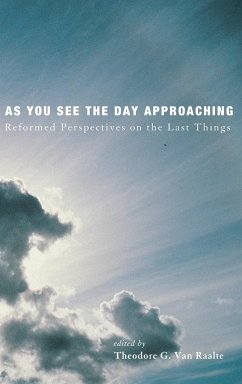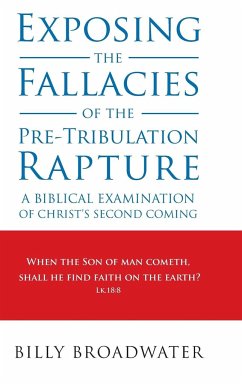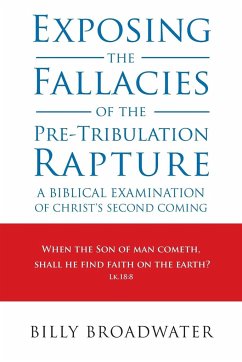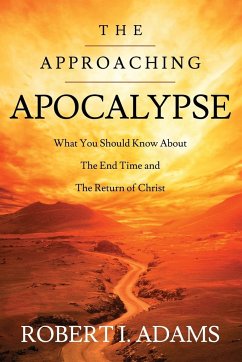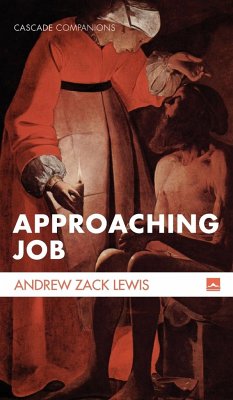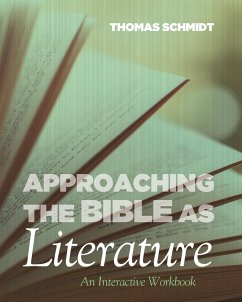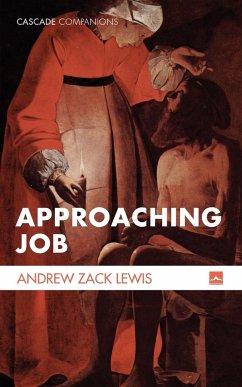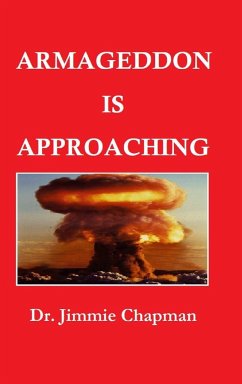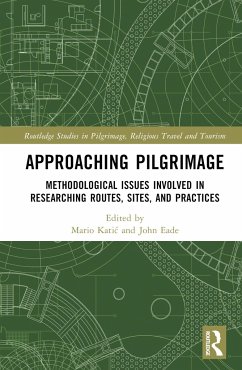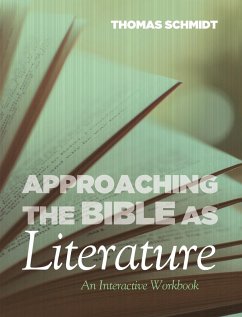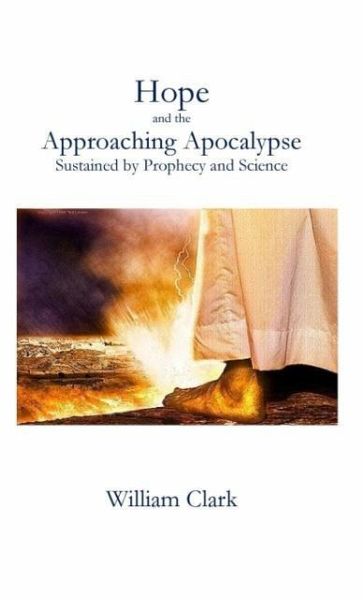
Hope and the Approaching Apocalypse
Sustained by Prophecy and Science

PAYBACK Punkte
9 °P sammeln!
Do faith and science prove or indicate that there is something to all of the attention surrounding the apocalyptic clamor? I’m sure that many of us are wondering why so many people are obsessed with the apocalypse. We not only see cable documentaries and movies about the apocalypse, but we also hear about it at church and through other associations. By now, everyone has heard about preppers; even FEMA is preparing in a big way. Is it a fade or is there something to it? The obsession seems to be with not just one group or religion, but it includes a variety of people and ages. About four year...
Do faith and science prove or indicate that there is something to all of the attention surrounding the apocalyptic clamor? I’m sure that many of us are wondering why so many people are obsessed with the apocalypse. We not only see cable documentaries and movies about the apocalypse, but we also hear about it at church and through other associations. By now, everyone has heard about preppers; even FEMA is preparing in a big way. Is it a fade or is there something to it? The obsession seems to be with not just one group or religion, but it includes a variety of people and ages. About four years ago, I was shopping at a large chain discount store. A young man in his twenties started talking to me about prepping. It seemed that his belief in the coming apocalypse had to do more with being prepared for a nationwide or worldwide catastrophe. He was preparing with several other young people and an older man, who owned a shelter in the country. They were gathering food, water, medical supplies and weapons among other things. One cable documentary interviewed a young, prepper woman, who concentrated on physical fitness and a "bug-out" system in a big city, because she felt civil chaos would take place due to a global oil shortage. I would think that a dedicated prepper wouldn’t be living in a big city! Believers in the soon coming apocalypse also seem to be from diverse educational and financial backgrounds. A good example of diversity is my own brother, Dr. Richard Clark, who has his own practice and is affiliated with a prestigious medical school. It might be of no surprise that an evangelical like myself would tend to believe in the apocalyptic age, but some may be surprised that many like my brother also believe in the approaching apocalypse. When our mother’s health declined, my brother and I met a number of times in our hometown. Our lives had taken different paths since graduation from high school and college. My older brother pursued a career in medicine; obtaining several specialties and an undergraduate degree from M.I.T. After college, my life took me into evangelical ministry. I traveled from Indiana to Texas, and later became a pastor and retired as a pastor. As we caught up with each other, we were both surprised to learn that both of us believed that we are living in the apocalyptic age. We see faith and science merging together, as we experience the closing of the current era of mankind. I first began to get a sense of this by the end of my undergraduate days. My brother began to sense it much later from his scientific and mathematical knowledge. He has studied a number of theories, and believes that based on science and mathematics, the apocalyptic age is upon us. Perhaps there is more to the Hollywood movies and television documentaries on the apocalypse than just money and ratings. There seems to be a desperation in our times that not only looks to religion for answers, but to preparedness due to the fear of world-wide catastrophes ranging from pandemics to nuclear warfare to natural disasters to food and water shortages. Religious believers, preppers and even scientists are unwittingly merging together in the belief of the apocalypse. In a number of apocalyptic documentaries today, we here the phrase, "it’s not a question of if it will happen, but when it will happen". Increased knowledge will take us from apocalyptic fanatics to realists as we explore science, religion, personal convictions and the unstable world in which we live.



